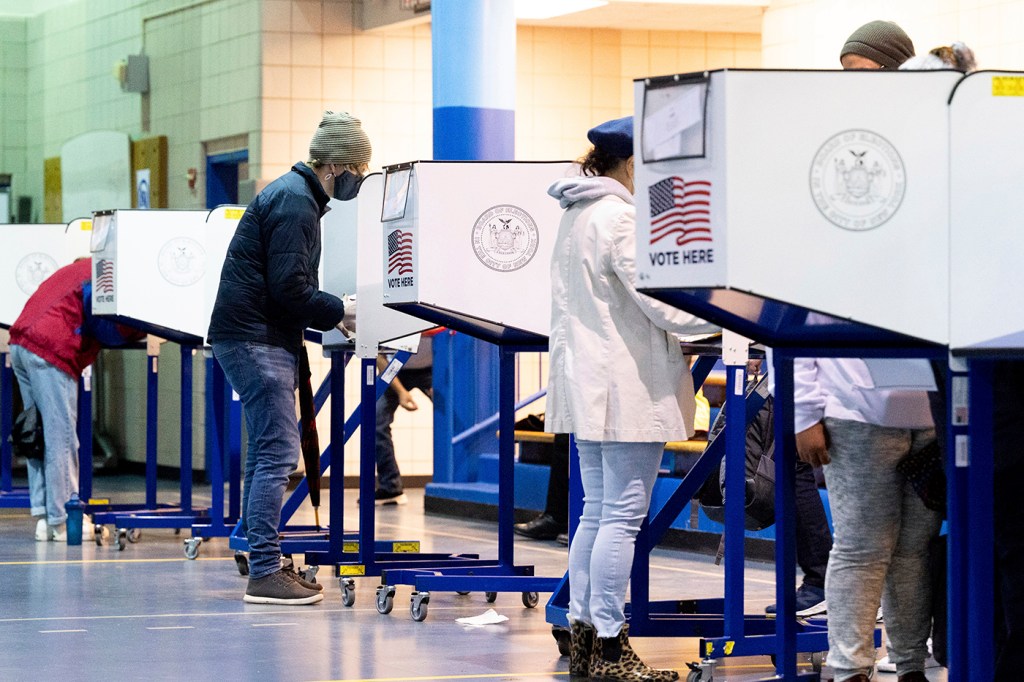Many Republicans don’t believe the election results, a new survey says

More than half of Republican voters either believe President Donald Trump actually won the 2020 race or aren’t entirely sure who did win, according to a new survey by researchers from Northeastern, Harvard, Northwestern, and Rutgers.
The findings underscore the success Trump has had in convincing supporters of his voter fraud and election-rigging claims. While no proof of tampering has emerged so far, the president has repeatedly claimed that his election was rigged or stolen, fired members of his administration who didn’t go along with the allegations, and pressured state officials to overturn results.

David Lazer, distinguished professor of political science and computer and information science. Photo by Adam Glanzman/Northeastern University
Many GOP lawmakers and state attorneys general are backing Trump, adding credence to the fraud claims, says David Lazer, university distinguished professor of political science and computer and information sciences at Northeastern, and one of the researchers who conducted the online study.
“Trump is like a giant domino that causes a bunch of other dominoes to fall,” he says.
The survey of 24,000 Americans was conducted online throughout November, after almost every state had certified its results and Biden had surpassed the required number of Electoral College votes. Nearly 40 percent of Republicans voters said they believe Trump won a second term, while another 23 percent said they weren’t sure of the winner.
“It’s still pretty shocking that less than half of Republicans say Joe Biden won the election,” Lazer says.
He plans to conduct more research, but says the issue of who “won” could be entangled in semantics.
“There’s a question of acknowledging the reality that Biden is going to become president,” Lazer explains. “And there’s a difference when you say he won the election.”
The survey found that more than 90 percent of Democrats believe Biden won the presidential race. Independents are more skeptical, with 34 percent either believing Trump was victorious or saying they weren’t sure who was.
“Being an independent means that you have less trust in institutions,” Lazer explains. “They’re not really in between Democrats and Republicans. They would probably tend to lack trust no matter who won.”
Researchers also observed demographic differences in the survey results, with 20 percent of white respondents overall believing Trump won, compared to 14 percent of Hispanic respondents, 9 percent of Asian respondents, and 7 percent of Black respondents.
There were differences among age groups, too, with 76 percent of Americans 18 to 24 years old believing the Democrat was the victor, the highest percentage among the four age brackets who believed that. People 45 and older were more inclined to believe that Trump actually won.
Four states that Biden won had the highest percentage of respondents who believed the election results: Massachusetts (79 percent), New Jersey (76 percent), and New Hampshire and Connecticut (tied at 75 percent).
Meanwhile, four states that Trump won were also ones that had the highest percentage of respondents who believe he was the victor: West Virginia (36 percent), Ohio (25 percent), and Texas and Wyoming (tied at 23 percent). In Pennsylvania—which Biden won by more than 81,000 votes—63 percent of residents believe the election results, according to the survey.
On Tuesday, the U.S. Supreme Court rejected a GOP-led lawsuit to reverse the certification.
In Georgia, meanwhile, 66 percent of respondents believe Biden won, compared to 18 percent who believe Trump won, according to the survey. Biden won the election by about 12,000 votes out of 5 million counted, making him the first Democrat to flip traditionally-red Georgia in nearly 30 years.
The survey findings were released just days before the Electoral College convenes to certify the election results. On Monday, electors are expected to award Biden 306 electoral votes to Trump’s 232. A presidential win requires 270 Electoral College votes.The electoral results will be tallied by members of the House and Senate on Jan. 6, followed by Biden’s inauguration on Jan. 20.
For media inquiries, please contact media@northeastern.edu.





